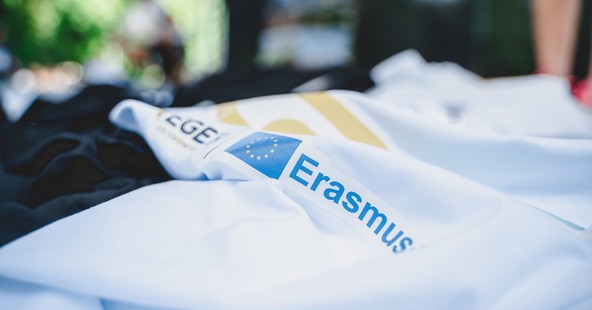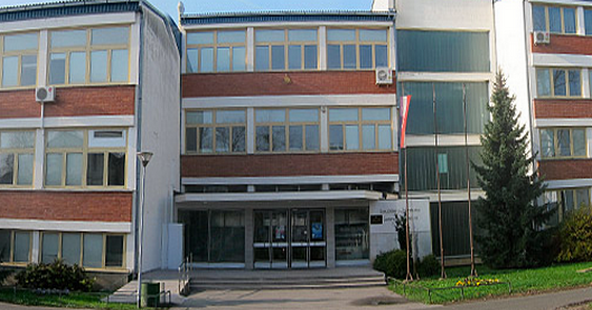Foreign students

Category: Mobilnost studenata
CONTACT AND ADDRESS
University of Zagreb Faculty of Geotechnical Engineering
Hallerova aleja 7
HR-42000 Varaždin, Croatia
Phone: + 385 42 40 89 00
Fax: + 385 42 31 35 87
E-mail: studentska.referada@gfv.unizg.hr, ured.tajnika@gfv.unizg.hr
Website: www.gfv.unizg.hr
FACTS & FIGURES
DEPARTMENTS: 4
CHAIRS: 0
TEACHING STAFF: 33
NON-TEACHING STAFF: 31
STUDENTS: 224
Vice-dean for Science
Professor Nikola Sakač, PhD
@: nsakac@gfv.hr
ECTS coordinator
Ana Jelčić, lecturer
@: ajelcic@gfv.hr
Phone: +385 42 408 921
International relations contacts:
Denis Težak, PhD
@: international@gfv.unizg.hr
Phone: +385 42 408 952
Administrative staff
Štefanija Hrgović Bün, univ.bacc.oec.
@: stefanija.hrgovic@gfv.unizg.hr
dzegnal@gfv.hr
international@gfv.unizg.hr
INSTITUTIONAL PROFILE
The Faculty of Geotechnical Engineering is one of two faculties of the University of Zagreb situated in the town of Varaždin. The Faculty offers a three-year (six-semester) bachelor's degree programme in Environmental Engineering, a two-year Master's programme in Environmental Engineering and postdoctoral study programme in Environmental Engineering. Environmental engineering is an interdisciplinary field of study that involves the applications of natural sciences, geology, hydrology, civil and other engineering principles to the problems connected with engineering behaviour of earth materials, water management and environmental protection. Accordingly, in the second cycle students can choose between the Geoenvironmental Engineering module, Environmental Management module, and Water Management module.
PROGRAMME EMPHASIS
The Bachelor programme of Environmental engineering has 180 ECTS credits. The curriculum comprises environmental aspects of geotechnical and hydrotechnical engineering, and environmental protection measures and procedures for the remediation of soil, water and air pollution, appropriate to the engineering study at the bachelor level. A special emphasis is given to the laboratory and on-site teaching in order to acquire knowledge and skills in the sampling and analysis of air, soil, water and waste. The programme will teach students to recognize and describe various problems in environmental engineering and to develop competencies to apply their knowledge in practice.
The Master programme of Environmental Engineering has 120 ECTS credits and it comprises the courses in Geoenvironmental Engineering, Environmental Management and Water Management. The students who have completed the 1st cycle programme of Environmental engineering or any other comparable programme can apply for the admission. During the studies students gain advanced level of knowledge and skills in specific areas of environmental engineering. The graduates will develop competencies to identify, analize and solve various problems in environmental engineering and to apply their knowledge in practice.
The doctoral study programme offers a certain number of lectures which are necessary for the acquisition of scientific knowledge and a level of engineering education important for solving economic and social problems in environment. The attention is also paid to other types of teaching work such as research seminars and discussion groups, with the purpose of writing, publishing and presenting scientific papers, i.e. the activities whose function is to train students for an independent research work. The subject matter of the doctoral study requires that doctoral students have an interdisciplinary approach to solving engineering problems, that they develop critical thinking and adjustment to teamwork. By conducting a scientific research, doctoral students acquire knowledge and research competences such as analytical and critical thinking and planning, organizing and managing of scientific projects- in this case a doctoral research, which original scientific contribution eventually results through the process of writing and defense of a doctoral dissertation.
CAREER PROSPECTS
The Bachelor programme ensures the adequate preparation for the continuation of the education at the master level as well as practical competencies nedeed to start a career as a bachelor of engineering. The Master programme of Environmental Engineering ensures the adequate competencies for graduates to start successfully their professional career and to continue their professional development. Environmental engineering and geoengineering offer job opportunities in public sector and in private companies specializing in geotechnical engineering, hydrotechnical engineering and environmental protection.
The entire structure of the doctoral study stimulates students to work independently, to manage research works responsibly and to acquire work competences and responsibility for their own progress. A course which particularly develops generic and transfer skills of a scientific work is Research work methodology, which is required in the first year of the study. Besides that, each elective course such as Environmental management, Environmental economics, Environmental protection policy, Moral and ethical approach to the environment, Ecological problems, Corporate and environmental management systems, Communication and education in environmental protection in a way contributes to the development of generic skills in solving the problems of environmental engineering. Furthermore, during the study either as part of the curriculum or for the needs of conducting a research, doctoral students have a possibility to develop other generic or transfer skills firstly through their work in well-equipped laboratories or through participation in field research works. In that sense they are involved in the entire work process from samples preparation, device calibration, measurement, analysis and data management, which enables them to acquire work competences in a practical way. Doctoral students can use a specialized programme packages in the field of doctoral research, which is another necessary work competence as well as a transfer skill necessary for their future career.
RESEARCH ORIENTATION
Faculty research areas include water resources, groundwater protection, geotechnical aspects of landfills, extraction and mining, and other environmental topics connected with soil, air and water. Practical and scientific research is conducted in the Geotechnical laboratory, the Laboratory of Environmental Geochemistry, the laboratory of Environmental Engineering and the GIS lab where students gain practical experience necessary for their future profession.
The Faculty scientific profile according to research areas and interests can be found here The Faculty of Geotechnical Engineering-ID








